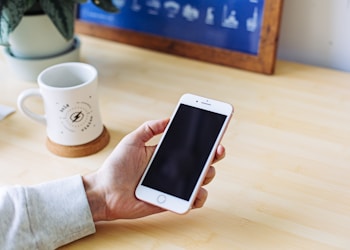We all know that a lot of us carry a lot of important data with us, whether it is in our pockets, purses, wallets, bags, and also our devices. These gadgets often sync with “the cloud”. Unfortunately, more than fifty percent of iPhones are not backed up properly.
Even though we can access our data quite easily, the ugly truth is that a lot of strangers can do it too, forcing us to think that we are somehow protected from any form of hacking. Namely, a lot of people do not think that backing up is important, especially because you can access everything from practically any terminal.
Sadly, according to recent statistics, approximately one in three iPhones are going to be either lost or stolen during their lifetime. Therefore, you have to do anything you can to protect all your important files. In this article, we are going to talk about the consequences of not backing up your iPhone.
The Importance Of Backing Up Your iPhone
What Type Of Data Is Definitely At Risk?
Here’s how it goes. If your device is being damaged, stolen, or lost one of these days and you didn’t perform a backup the extent of everything that you’ve lost will hugely depend on how many files you’ve managed to manually sync to your computer. Also, it will largely depend on which iCloud sync types of services you’ve used:
- Pictures and Videos – If you do not import these things manually to your desktop computer or laptop, then they are at serious risk. It’s worth mentioning that you can activate iCloud Photo Library, without activating iCloud Backup. If that’s the case, then it’s highly likely you will have to pay some cash for additional storage. If you’re fine with Google storing your images, then you can always rely on Google Photos iOS application as well.
- Notes, Calendars, and Contacts – These types of data are typically synced through various accounts, such as Yahoo, iCloud, Gmail, and many others. Now, bear in mind that events and contacts that are placed inside your iPhone account are not synced immediately and are at risk of being lost permanently.
- Messages – These things, along with attachments, can also be potentially lost if you do not back them up. So if you decide to utilize iCloud Messages you’ll be able to save them.
- Health and Home data – All of this can be synced through iCloud and luckily, doesn’t take too much space. You can always check that info in your iPhone’s Settings application, precisely the iCloud section. If you decide to back your data locally, ensure you’ve activated backup encryption, or otherwise, your health data is not going to be included.
- Voicemail – Sadly, there isn’t any easy way to save these, so it’s highly likely they are going to be lost.
- Safari Bookmarks and History – You will lose it if you do not sync it by employing iCloud.
- Documents & Data of Apps – A lot of applications nowadays offer their users the opportunity to store their files in iCloud Drive. If you do not opt for this option, you are going to lose your data. More importantly, you are going to lose all your data that is stored in applications that do not utilize cloud storage. Now, when it comes to applications that store your files on their servers, such as Slack or Facebook, you are going to potentially lose only your preferences.
Local Backup or iCloud?
What Is A Better Option?
An average person isn’t supposed to think about various technological shifts that are constantly happening. It seems like Apple agrees with this, therefore, over the past couple of years, iOS has been continuously advertising cloud-oriented default settings:
- iCloud can be used for every single dataset
- In the latest iOS versions, you cannot automatically store Contacts, Notes and Calendars locally
- iCloud Backup is activated by default without choosing this option
When it comes to Local Backups there are a couple of things that you must keep in mind:
- All backups are versioned, in the so-called “Time Machine” style
- These versions are restorable and browsable
- The backup location is adjustable. It even supports NAS.

So what can be concluded after all this info that we have provided you with? The answer is simple – you should back up your iPhone no matter what. It doesn’t matter what type of backup you are going to choose, but what matters is that you do it. You know how people love to say, “Better safe, than sorry.”












